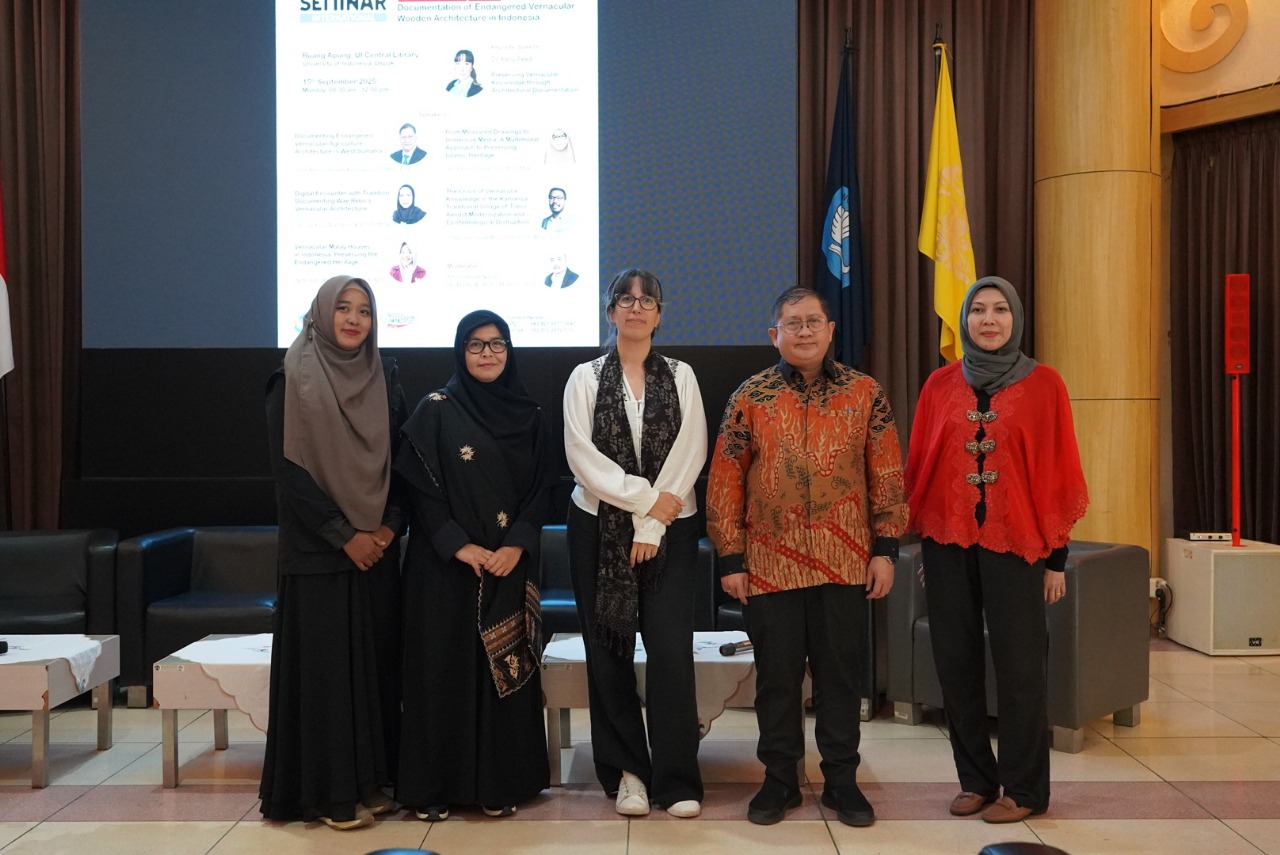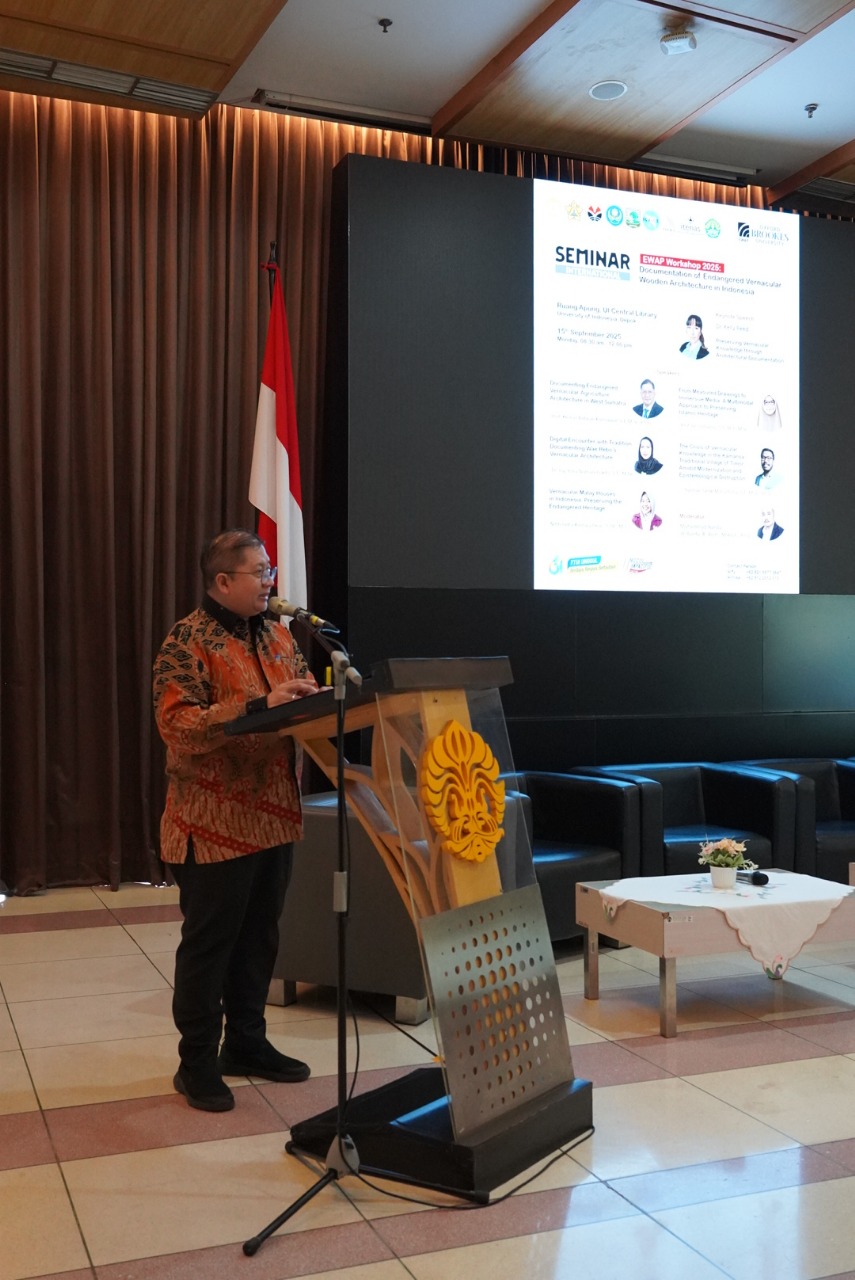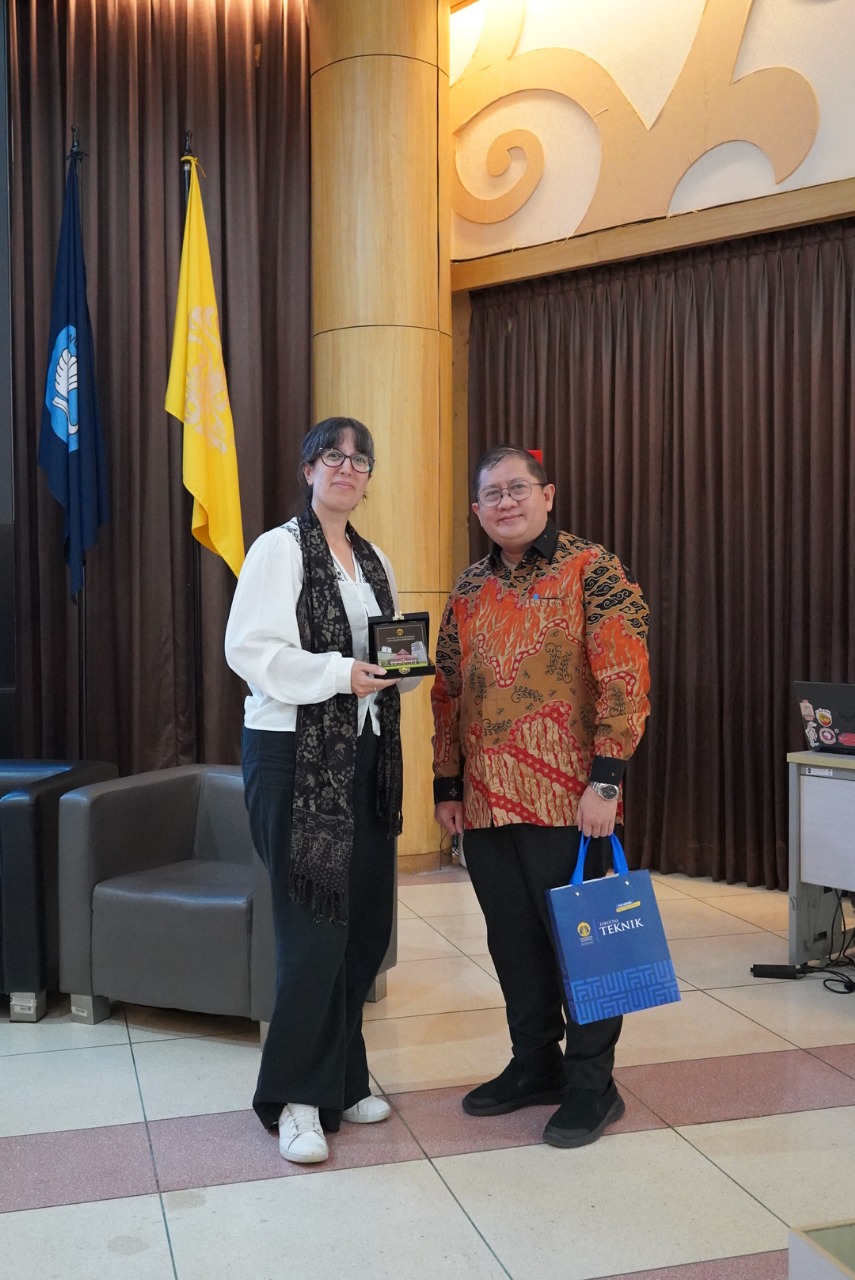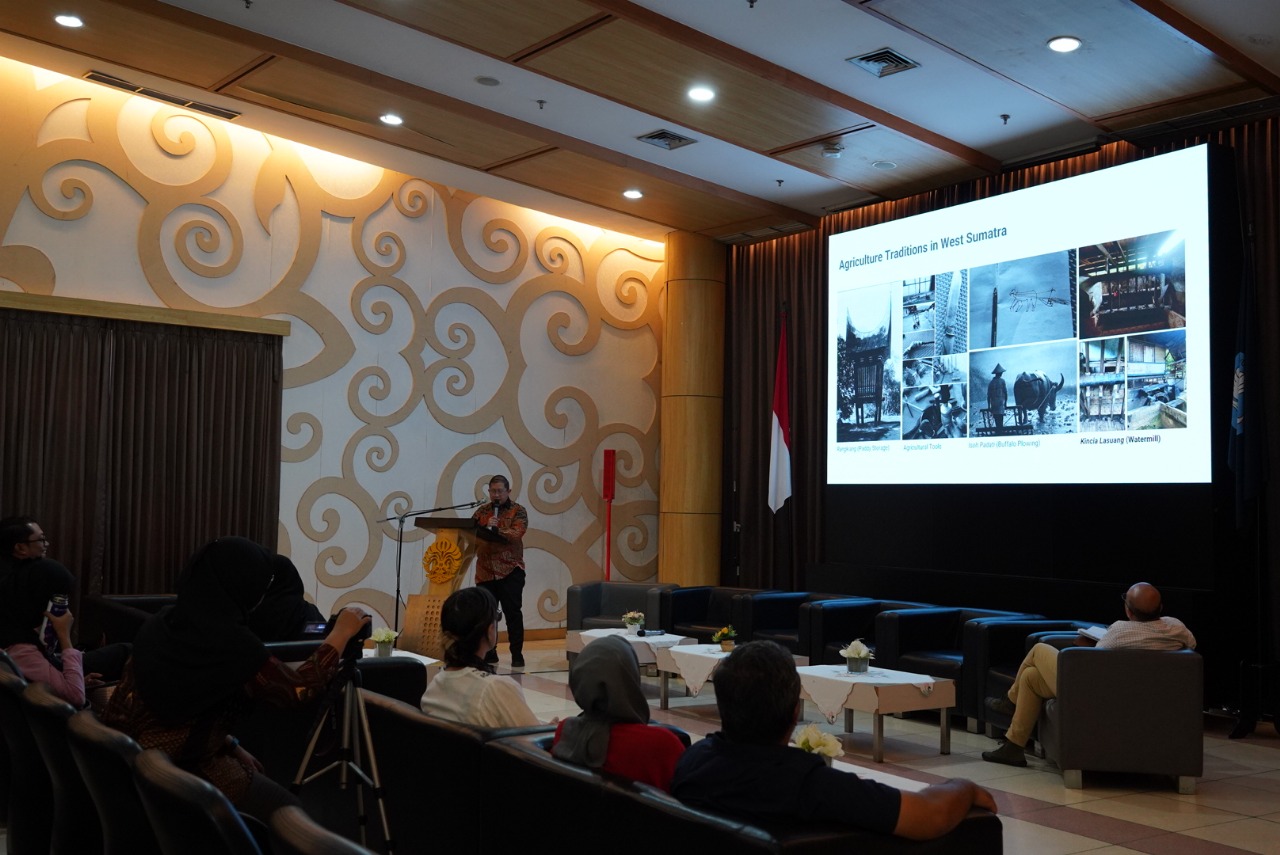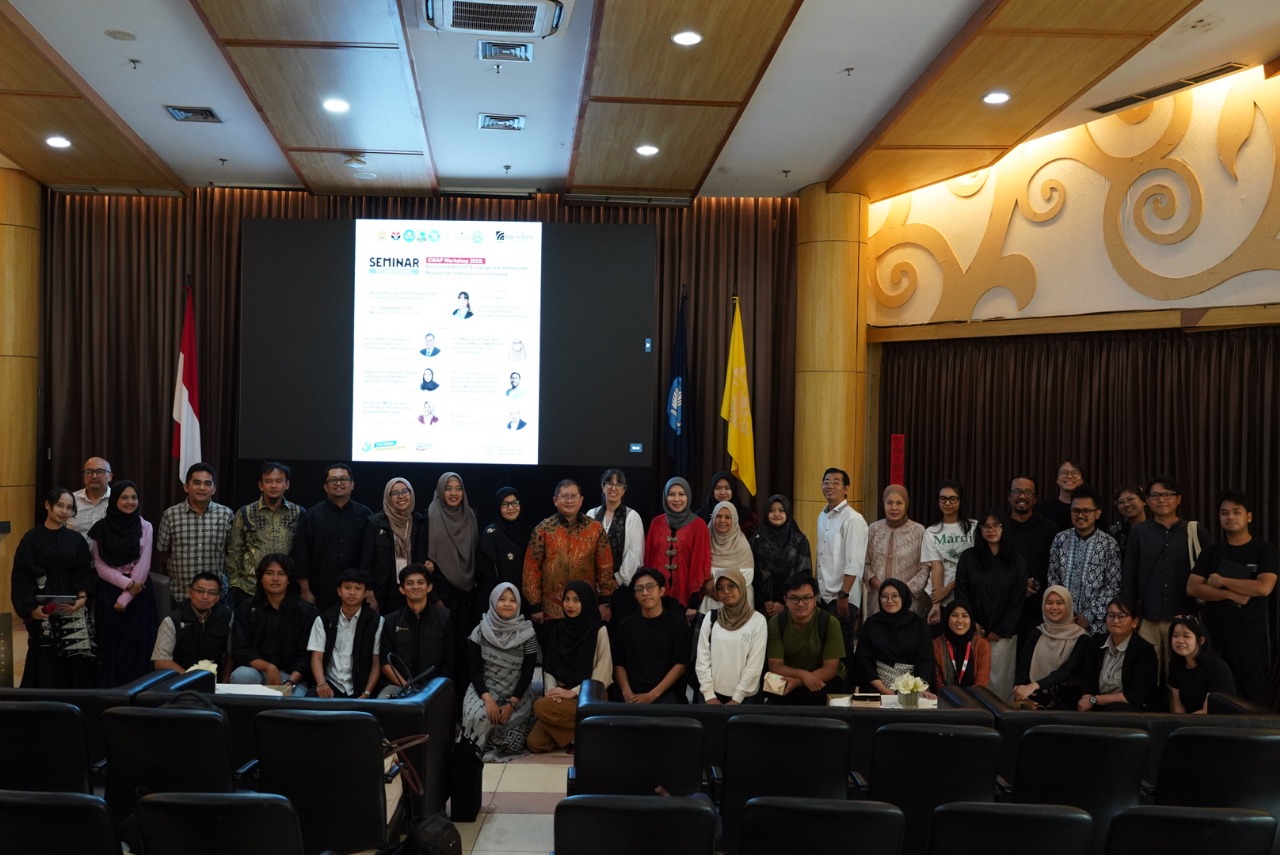The Faculty of Engineering, Universitas Indonesia (FTUI), in collaboration with Vernadoc Indonesia and Oxford Brookes University, held the EWAP Workshop 2025: Documentation of Endangered Vernacular Wooden Architecture in Indonesia on September 15, 2025, at the Floating Room, Central Library of Universitas Indonesia, Depok. This event is part of the international Endangered Wooden Architecture Programme (EWAP), which aims to document and preserve vernacular wooden architecture that is increasingly at risk of extinction across various regions of Indonesia. The program featured not only seminars and academic discussions but also a public exhibition showcasing documentation results, including photographs, architectural drawings, videos, and 3D models from various EWAP projects.
In his opening remarks, the Dean of the Faculty of Engineering UI, Prof. Kemas Ridwan Kurniawan, S.T., M.Sc., Ph.D., emphasized the importance of systematic efforts in maintaining cultural heritage sustainability.
“Vernacular wooden architecture is not merely a material legacy but also carries invaluable traditional knowledge and local wisdom. Through systematic documentation, we are preserving not only its physical form but also the knowledge embedded within it,” said Prof. Kemas.
The event began with a keynote speech by Dr. Kelly Reed from Oxford Brookes University, titled “Preserving Vernacular Knowledge through Architectural Documentation.” Dr. Reed shared EWAP’s experiences in documenting endangered wooden architecture around the world, including wooden churches in Romania, traditional houses in India, and wooden boatbuilding traditions in South Asia. She highlighted various documentation methods, ranging from photography and architectural drawing to 3D LiDAR scanning and oral history interviews with local communities.
Furthermore, Dr. Reed discussed the challenges in the documentation process, such as language and cultural translation barriers, community distrust due to past exploitation, and issues surrounding data ownership and archival access. She noted that documentation should not only focus on the physical structure but also on the intangible cultural practices associated with it. Therefore, EWAP advocates for open-access digital archives to ensure that local knowledge remains owned by communities and can be passed down across generations.
During the presentation sessions, several scholars from universities across Indonesia shared their research findings. Among them were Prof. Kemas Ridwan Kurniawan, who presented a study on vernacular agricultural architecture in West Sumatra; Dr.-Ing. Yulia Nurliani Lukito, who examined the documentation of Wae Rebo architecture; Prof. Dr. Cut Dewi, who discussed a multimodal approach to preserving Islamic heritage; I Nyoman Gede Maha Putra, Ph.D., who explored the crisis of vernacular knowledge in Timor; and Nitih Indra Komala Dewi, S.Pd., M.T., who studied traditional Malay houses in Indonesia.
Following the seminar, the event continued with the opening of the Vernacular Wooden Architecture Documentation Exhibition, inaugurated by Dr. Kelly Reed and the Dean of FTUI. The exhibition featured a variety of research and field documentation results from regions such as West Sumatra, East Nusa Tenggara, Aceh, and traditional Malay houses.
The workshop moderator, Mohammad Nanda Widyarta, Ph.D., noted that the event served as an important forum for cross-disciplinary and intergenerational knowledge exchange. With the involvement of students, researchers, and local communities, EWAP Workshop 2025 is expected to strengthen collaboration in safeguarding the sustainability of Indonesia’s vernacular wooden architectural heritage.
***
Public Communications Office
Faculty of Engineering, Universitas Indonesia

